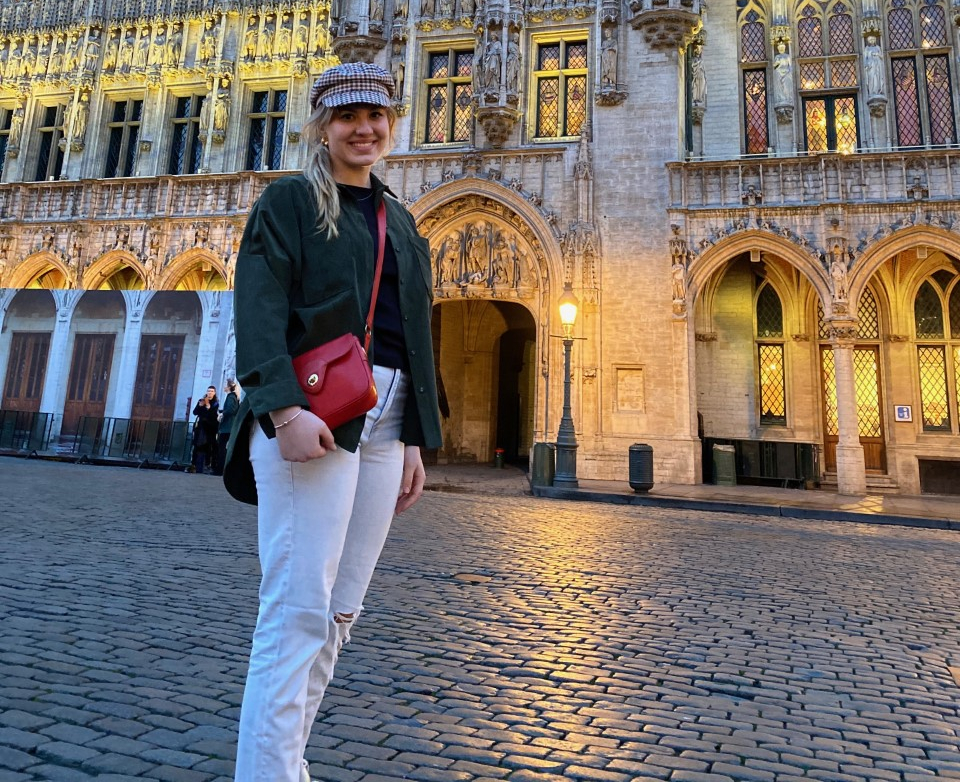This past January, I traveled to Ghent, Belgium for a two-week interdisciplinary program on palliative and end of life care. This program was hosted by Artevelde University College Ghent and organized by the COHERE Academy, a non-profit organization dedicated to collaboration in higher education to promote innovation, education, and best practices in the fields of health, social care, and rehabilitation.

This interdisciplinary program consisted of students from seven European universities and the UConn School of Nursing. Students came from a wide range of disciplines, including nursing, speech pathology, occupational therapy, and physical therapy. The program sought to educate students on the nuances of end of life and palliative care through active discussions about our respective countries’ healthcare policies and social climates surrounding end of life care, site visits and volunteering with patients, and presentations from experts in the many fields relevant to a patient’s medical experience at the end of life. During the program we also discussed many of the philosophical aspects of end of life care. One of the most powerful experiences of this program was listening to a panel of healthcare professionals debate the implications of euthanasia, which is legal in Belgium. This experience prompted me to further explore the philosophical arguments for and against the legalization of physician assisted suicide in the United States by writing a paper about it for Public Health and Policy in an Aging Society (PUBH 5475) this past Spring semester.
As an individualized major in Healthcare and Aging, my major encompasses a wide range of courses on aging, healthcare systems and policy, social determinants of health, and healthcare justice. I originally worried that my field of study was too niche and I wouldn’t be able to find an international program that met my interest in the intersection of healthcare and public policy. However, after hearing about a friend in the School of Nursing’s experience in Belgium, I knew that this program would be a great fit. I worked with the Education Abroad office to connect with the School of Nursing, and was accepted to participate in this program despite not being a nursing major. I encourage everyone considering an individualized major to seek out opportunities that may seem unconventional or are in a different department or school.
Although I had learned about international healthcare systems and policies in my courses, I was able to experience another country’s healthcare system and approaches to end of life care firsthand. I greatly appreciated the experience of discussing such an important topic with students from different backgrounds. Upon returning to the United States, this experience fostered my critical examination of the U.S. healthcare system in comparison to that of Belgium, both in my course work and later in each country’s handling of the COVID-19 pandemic. This experience emphasized the variety of approaches for handling medical issues between different countries and cultures. I left Belgium with a more global perspective on healthcare, and a strong desire to improve healthcare policy here in the U.S. Most importantly however, I relish the friendships I formed with my peers and the desire to pursue some form of postgraduate education abroad that came from this experience.
By Simone Fournier
IMJR: Healthcare and Aging